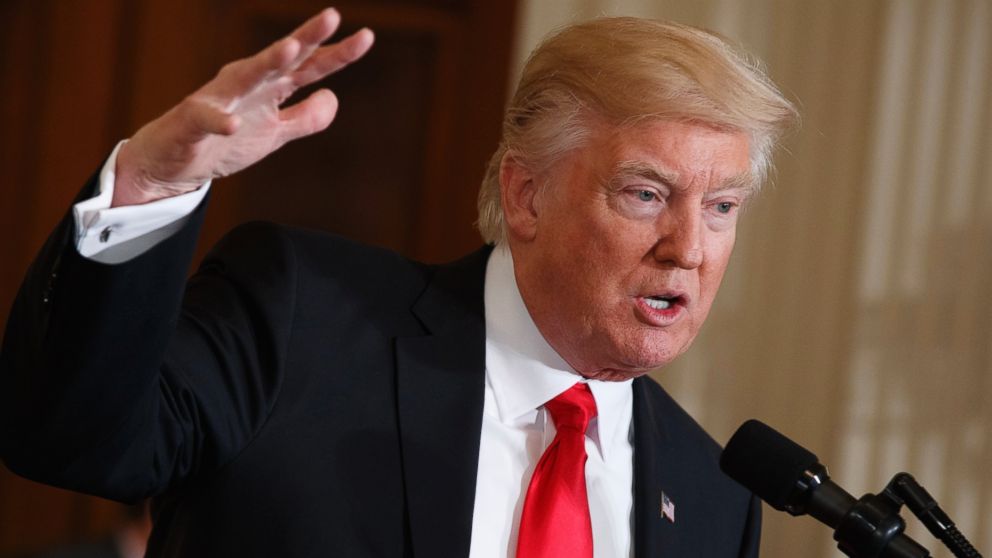Donald Trump Says He'll Give Christian Refugees Priority
— -- Donald Trump campaigned on the promise to cut down or stop the number of refugees entering the country, but he has now said that persecuted Christians will be treated as priorities.
During an interview with the Christian Broadcasting Network, the president said today that Christians in Syria have been treated unfairly in the refugee process.
"They’ve been horribly treated. Do you know if you were a Christian in Syria it was impossible, at least very tough to get into the United States? If you were a Muslim you could come in, but if you were a Christian, it was almost impossible and the reason that was so unfair, everybody was persecuted in all fairness, but they were chopping off the heads of everybody but more so the Christians. And I thought it was very, very unfair. So we are going to help them," Trump said in a clip of the interview that was released this afternoon.
In the remarks released by CBN in advance of the full interview airing on Sunday, Trump did not give any examples or cite evidence to support his claim that it is more difficult for Syrian Christians to gain refugee status than Syrian Muslims.
According to the CIA World Factbook, as of June 2014, 87 percent of Syrians were Muslim while 10 percent were Christian.
And likewise, there were more Muslim refugees from Syria who came to the United States last year than Christian refugees.
The Refugee Processing Center reports that in 2016, there were 15,302 Muslims who arrived in the U.S. from Syria and there were 93 people, also from Syria, who identified as either Catholic, Christian, Protestant or Jehovah's Witness.
"The Middle East is a region of extraordinary ethnic and religious diversity," said Chris Boian, the senior communications officer of the U.N. Refugee Agency, UNHCR.
"UNHCR believes that any human being that has been forced to flee his or her homeland to escape life-threatening conflict and persecution should receive equal treatment for protection and assistance regardless of their religion, nationality or race," he told ABC News.




